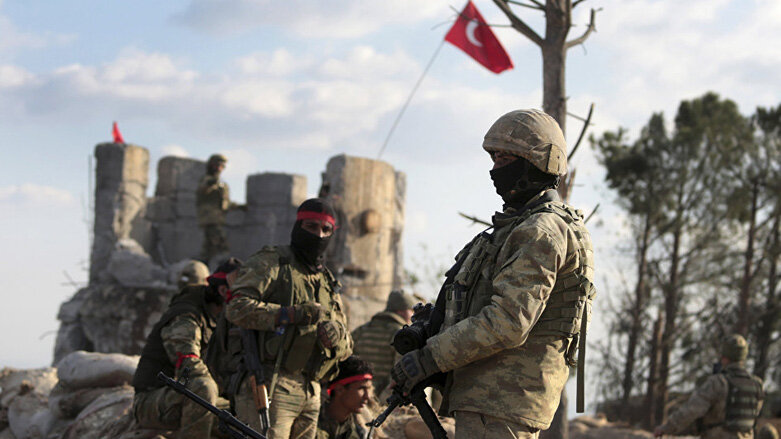The New York Times Whitewashes Turkey's Occupation of Northern Syria: A Reality Check
by Debbie Bookchin
A recent article in the New York Times whitewashes the ethnic cleansing, displacement, and abuse of women that has brought misery to what was once a thriving, largely Kurdish region in Northern Syria. The Times piece was first published online as “Turkey’s Army Invaded Syria. Now, It's a Lifeline for Millions There,” (February 16, 2021) before undergoing two headline changes and eventually landing on the front page of the print edition on February 17, 2021 as, “A Safe Zone That Can’t Protect Against Misery.” Violating basic principles of journalistic ethics—principles that include interviewing people on the receiving end of a war zone invasion—the article reads like a press release from the Turkish regime of President Recep Tayyip Erdogan, ignoring the enormous suffering endured by the thousands of original inhabitants of Afrin as a result of the Turkish-led occupation.
Prior to the Turkish invasion in January 2018, Afrin was part of the broader, Kurdish-led area known as Rojava or more formally, the Autonomous Administration of North and east Syria (AANES), whose fighters have been our best allies in the defeat of ISIS. The AANES, a region of about 5 million people, is a pluralist democracy that enshrines the rights of all ethnic minorities and has been especially effective in promoting women's rights. Practices like forced marriage, polygamy, child marriage, and honor killings are outlawed. Laws mandate autonomous women’s councils, and the inclusion of at least 40 percent female representation in every legislative body, as well as female co-chairs in all administrative positions.
The invasion of Afrin by Turkey in January 2018, caused an estimated 180,000 people, mostly Kurdish, to flee their homes; most of them now live in internally displaced persons camps in other parts of Syria. Today, as Amnesty International has documented about those who remained: “Residents in Afrin are enduring a wide range of violations, mostly at the hands of Syrian armed groups that have been equipped and armed by Turkey (including) arbitrary detentions, enforced disappearances, and confiscation of property and looting to which Turkey’s armed forces have turned a blind eye.” The intentional destruction of Kurdish and Yezidi religious and architectural sites, forced demographic changes including relocation of Arab families to Afrin from other parts of Syria, and compulsory use of Turkish language, even in schools, have been widely documented and signal Turkey's intent to annex the region permanently.
The most egregious violations by Turkey have been against women. The United Nations Commission of Inquiry on Syria describes Turkey’s war on women in Afrin as creating a “pervasive climate of fear which [has] in effect confined them to their homes.” The 25-page report adds: "Women and girls have also been detained by [Turkish-backed] Syrian National Army fighters, and subjected to rape and sexual violence – causing severe physical and psychological harm.” To humiliate and demoralize the population, the Turkish-backed militias have engaged in such practices as forcing detained men to watch the gang-rape of a female minor, the report notes, saying it amounted to “torture.” Women’s rights researchers have documented that in 2020 alone, 88 women and girls whose identities are known were kidnapped by Turkish-backed armed groups, a rate of approximately one incident every four days. This included six minor girls of whom five were still missing as of January 1, 2021.
The Turkish invasion of Afrin has been a humanitarian catastrophe. No amount of propaganda from the authoritarian regime of Turkish President Recep Tayyip Erdogan can erase the evidence on the ground of the grotesque human rights violations being perpetrated by Turkey, and it is shameful that the Times so completely missed the real story.
The AANES has long sought political recognition and autonomy within the borders of Syria. If the U.S. truly stands for human rights—and particularly women's rights—it is time for the Biden administration to demand the withdrawal of Turkish forces from this area, grant the AANES political recognition, and press for the AANES to have a seat at the negotiating table on the future of Syria.
Debbie Bookchin, a long-time journalist and author, is a member of the steering committee of the Emergency Committee for Rojava. She was in Rojava in March and April 2019.
